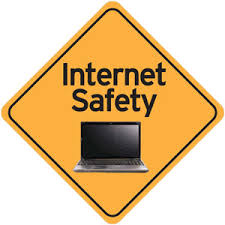Internet Safety an Important Issue for Ponca City Public Schools
Mike Seals - January 29, 2021 10:00 am

When schools across the world were suddenly forced to quickly shift to virtual learning due to the Coronavirus Pandemic, educators everywhere flocked to a number of different video-conferencing and content sharing platforms, such as Zoom, Google Hangouts, GoToMeeting, etc. Schools value these tools since they allow for direct interaction with students, enabling synchronous work, seeing students’ faces, and creating community by bringing a class or a club together virtually.
Zoom has become a favorite platform as the tool of choice for many schools during the Pandemic. During this COVID-19 period, there has been an increased likelihood of uninvited attendees showing up in Zoom meetings and deliberately trying to derail them. Educators around the nation have been reporting incidents of “Zoom-bombing” or “Zoom Trolls,” which are uninvited guests showing up on the screen, many times with inappropriate material. PCPS teachers have been taking extra precautions to keep this from happening and are creating safe environments for students.
Here are a few tips to help parents and caregivers provide a safe online learning experience for their children, particularly with video-conferencing or other mode of digital communication.
- Zoom Links: Please use caution and monitor your child’s Internet use. Zoom or Google Meet links that are found on YouTube or other areas of the internet are not safe. The only Zoom or Google Meet that your child will need access to for school will be from the teacher and posted on the PCPS Google Classroom. Make sure all Zoom links are provided by PCPS teachers. Students should not be sharing Zoom codes that are not from the teacher.
- Ensuring Student Privacy: Students should never give out private, personal information to the public including: full name, photographs, location, home or school address, phone numbers, Social Security number, passwords, names of family members, or credit card numbers.
- Stopping Inappropriate Behavior: Students need to be aware of any inappropriate behavior online. Some red flag questions may include:
Has this person asked you to keep anything about your relationship a secret?
Has this person hinted at or asked about anything sexual?
Have you felt uncomfortable, pressured or manipulated by this person?
Do you feel true to yourself – sticking to your values – when you communicate with this person?
- Cyberbullying: Students can experience Cyberbullying that can come from a former friend or other people you know. If a student experiences cyberbullying and ignoring it does not make it stop, getting help from a parent, teacher, school counselor or another trusted adult might be a good idea – especially if it contains threats of any kind. Students may also delete or block bullies.
- Disruptive Digital Communication: No student may make digital communication which disrupts the education environment that may include:
Sexting
Harassing, intimidating, threatening or bullying posts, tweets, blogs, images, texts, etc.
Distributing pictures, recordings or information which is harmful or embarrassing.
The Ponca City Public School District considers Internet safety very important! The Board of Education has developed policies to address this topic which may be found by visiting the District’s website at www.pcps.us and clicking on “Board of Education” and then “Policy Book.” Technology safety policies may also be found in Section III.



